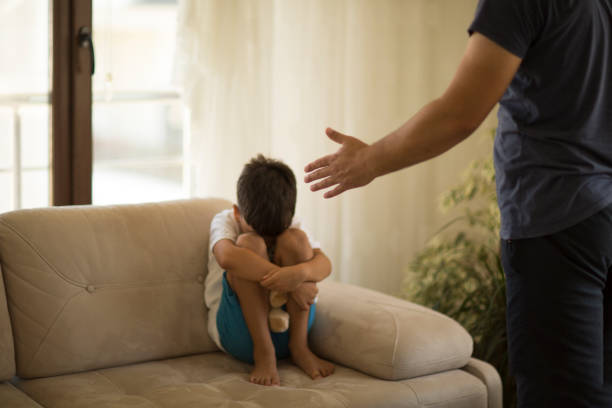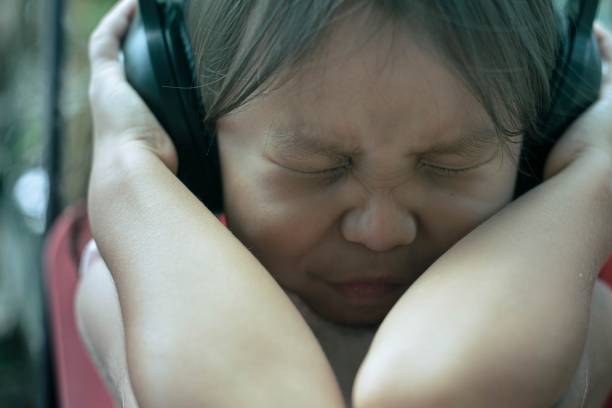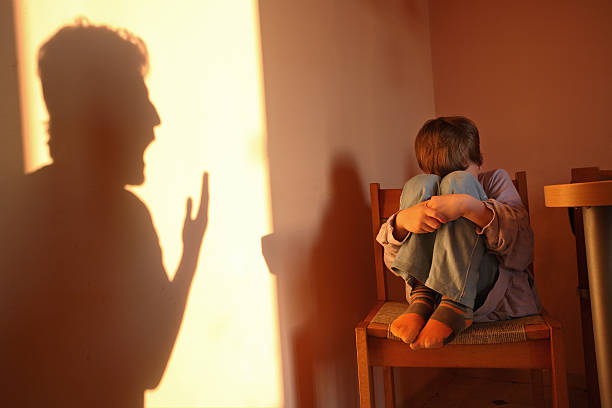We’ve all been there – dealing with a child who’s acting out and pushing your buttons. In those moments, it can be tempting to resort to force, also known as “manhandling,” to get them to comply. But have you ever wondered about the long-term impact of such actions on your child?
In this article, we’ll explore the consequences of manhandling and share some practical tips for handling those challenging situations without resorting to force.
Defining Manhandling
First things first, let’s define what we mean by “manhandling.” It’s when you physically handle or touch someone, usually in a rough way, to make them do what you want, especially in those high-pressure situations where immediate compliance is essential. It often happens when adults are overwhelmed by frustration, anger, or anxiety.
Manhandling and Younger Kids

Image from iStock
Younger children are more prone to experience manhandling because they may struggle to understand and follow instructions, as well as express themselves clearly. So, when adults yank, pull, or shove them to achieve a goal, it can quickly escalate into physical discipline if things don’t go as planned.
Parents and Manhandling
Believe it or not, parents are not exempt from resorting to manhandling. Some parents see it as a form of discipline, thinking it’s necessary to get their point across. Often, this happens when parents misinterpret their child’s behavior as rebellion, which stems from their own insecurities and emotional turmoil.
Society’s Double Standards
It’s interesting how society sometimes applies double standards. When caregivers or service providers are involved, they’re held to high standards. But parents, not so much. People tend to cut parents some slack, assuming they mean well. However, we should always maintain a minimum standard of care, emphasizing the importance of avoiding physical or emotional abuse.
The Impact on Children

Image from iStock
When a child experiences manhandling, it’s like a shockwave of anxiety. They get the message that there’s no safe space for them, which can lead to emotional trauma. If this happens repeatedly, it can intensify these feelings and create a sense of living in an unsafe world.
Long-Term Effects
The effects of prolonged physical abuse on children can be profound. They may experience delayed development, attention issues, poor school performance, and difficulties forming relationships later in life. Furthermore, these kids may struggle to manage their emotions and might turn to unhealthy coping mechanisms.
Keeping Your Cool

Image from iStock
To avoid resorting to manhandling, it’s crucial for adults to keep their emotions in check when dealing with difficult child behavior. Remember that children often act out for various reasons, like struggling with communication or seeking comfort.
The “Pause” Technique
Here’s a handy trick: practice the pause. Give yourself a moment to cool off before reacting. Once you’re calm, take a step back, try to see things from your child’s perspective, and address the issue calmly and effectively.
Teaching Emotional Management
Parents are like emotional role models for their kids. Using tools like the traffic light system (red for intense emotions, amber for mounting feelings, and green for calm) can help children identify and manage their emotions. And don’t forget to set clear boundaries and explain consequences to teach responsibility and empathy.
Takeaway
Manhandling may seem like a quick fix, but it’s far from a healthy solution for handling difficult child behavior. Instead, focus on building secure relationships, teaching emotional regulation, and fostering open communication. If you find yourself struggling, don’t hesitate to seek professional help.
Remember, there are plenty of resources and support groups available to learn effective and non-physical methods of discipline. By prioritizing your child’s well-being and creating a safe and nurturing environment, you can raise resilient and emotionally healthy individuals.
ALSO READ
Positive Discipline: Correcting Your Child By Establishing Connection and Encouragement
Harsh Discipline in Children is Linked to Long-Term Mental Health Issues
How to Discipline Without Yelling or Spanking
 Together Against RSV
Together Against RSV SG60
SG60 Pregnancy
Pregnancy Parenting
Parenting Child
Child Feeding & Nutrition
Feeding & Nutrition Education
Education Lifestyle
Lifestyle Events
Events Holiday Hub
Holiday Hub Aptamil
Aptamil TAP Recommends
TAP Recommends Shopping
Shopping Press Releases
Press Releases Project Sidekicks
Project Sidekicks Community
Community Advertise With Us
Advertise With Us Contact Us
Contact Us VIP
VIP Rewards
Rewards VIP Parents
VIP Parents
